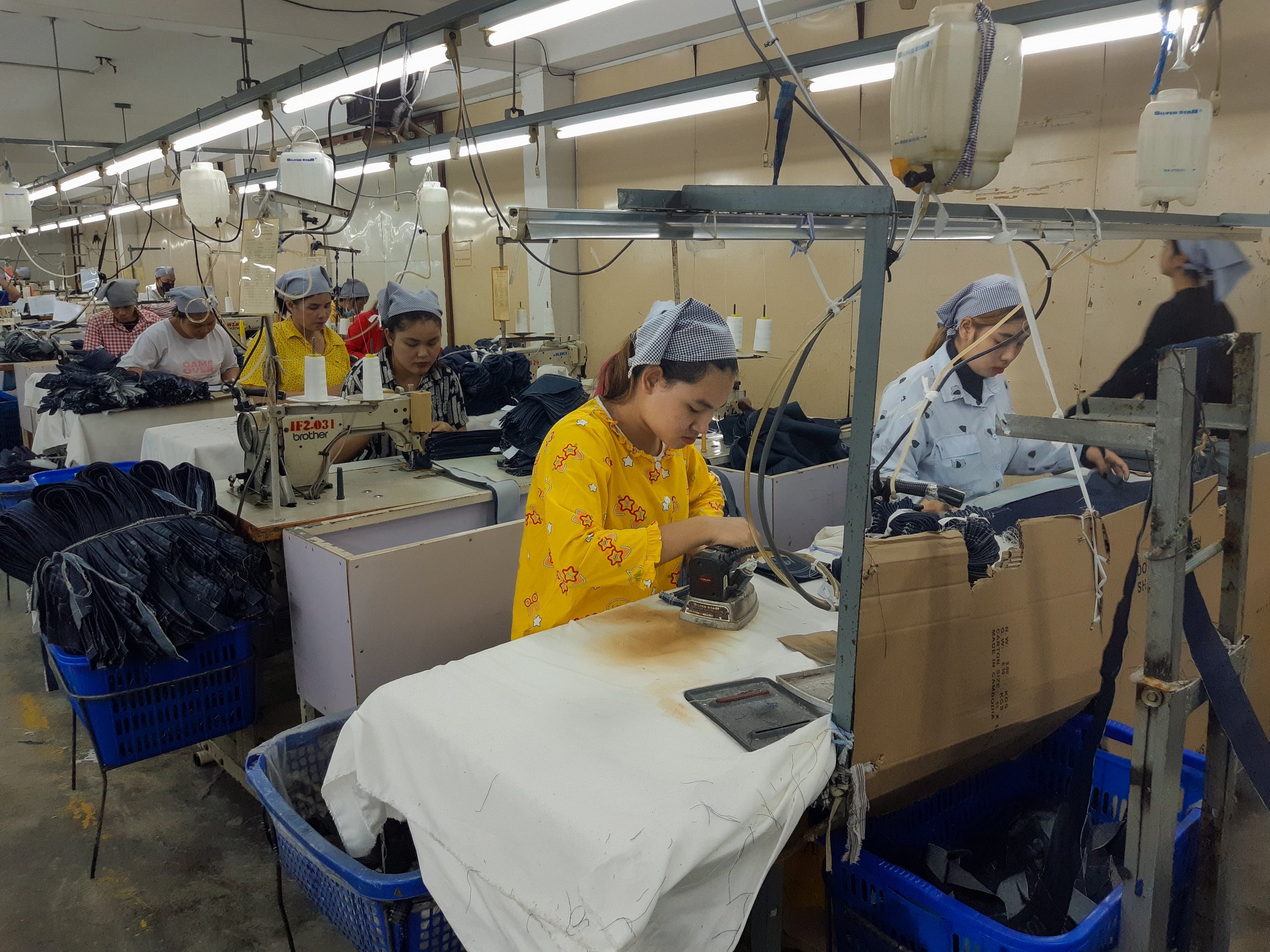The Struggle for Fair Wages and Workers Rights in Cambodia
Workers in the Cambodian garment industry are struggling with low wages, poor working conditions and increasing restrictions on labour rights. Yet consumers in wealthier countries often overlook these problems. To better understand the reality of these workers and the urgent need for global support, we spoke to two Cambodian labour activists, Mora and Vanny. Their views emphasise why international solidarity is essential to improving conditions in the Cambodian garment industry.
Mora, a representative of the Cambodian Alliance of Trade Unions (CATU), has witnessed these struggles first-hand. He started as a labourer in the garment industry before joining the union to campaign for better conditions. Vanny, who works for the independent union “Coalition of Cambodian Apparel Workers Democratic Union” C.CWADU also worked as a garment worker prior to her union engagement.. Both emphasise the need for international action to support Cambodian workers.
Mora has first-hand knowledge of the struggles of Cambodian workers. He recalls the harsh conditions and unfair treatment while working in the factory.
“After I dropped out of school, I found a job in Phnom Penh. At that time I was a labourer in a knitting factory.” he explains. “The wages were very low and the working conditions were very bad. We had to work long hours, often with compulsory overtime, but with very few benefits. Workers don't have proper annual leave or public holidays.” The turning point came when he could not take sick leave despite being ill. This experience made Mora realise that workers were being treated like machines. From then on, he knew that he had to form a trade union.
Today, garment workers in Cambodia continue to struggle. Inflation is high and wages very low. Mora explains that the minimum wage is 208 dollars a month, but that barely covers the basic cost of living. Many workers have to support their children and elderly parents without any access to social security. Many get into debt because of this.
Apart from the low wages, working conditions are a major problem. In the factories, the pressure to meet rising production targets is relentless. Some workers even skip toilet breaks to avoid falling behind. If they don't meet their quotas, they risk being fired.
According to Mora, Cambodian workers are faced with three major problems:
Wages: the current minimum wage is not enough to cover the basic costs of living. Many workers live from pay cheque to pay cheque and struggle to pay for food, rent and their children's education. A living wage is necessary so that workers can meet their basic needs without going into debt.
Health and safety: unsafe working conditions and extreme heat pose a serious health risk. Many factories lack adequate drinking water, hygiene facilities and ventilation, making the working environment dangerous.
Workers' rights: Freedom of association is under threat. Many workers who try to organise are intimidated, dismissed or even prosecuted. Without the ability to organise, it is almost impossible to negotiate better wages and working conditions.
These problems are closely linked. Without the right to organise, workers can hardly demand better wages or safety conditions. It is not enough to deal with just one problem - real change requires comprehensive reform.
Vanny emphasises the importance of unions and the right to organize: “ So my message to Swiss people is, please continue to support the people and workers in Cambodia. The space for freedom of association is getting smaller and smaller in our country.
There are many obstacles in our way and we need your support to educate our people and share knowledge. We also need people to put pressure on brands and keep them accountable, so that workers can experience more freedom, especially freedom of association.”
How Swiss consumers can help: Both Vanny and Mora emphasise the power of international pressure. According to Mora, Big companies are afraid of losing their customers. If consumers demand better working conditions, brands will be forced to act.
For Swiss consumers, the message is clear: Pay attention from where your clothes come from, and demand brands to take responsibility for their workers. Your voice as a consumer counts. Ask #whomademyclothes
By showing solidarity with Cambodian workers, consumers can play an important role in the fight for fair wages and better working conditions. Real change begins when we refuse to ignore the injustices happening in the supply chains of our everyday products.
Both Vanny and Mora were part of a workers' delegation invited to Switzerland by Solidar Suisse in January 2025. They are involved in a Solidar Suisse project to strengthen workers' bargaining power in Cambodia.

